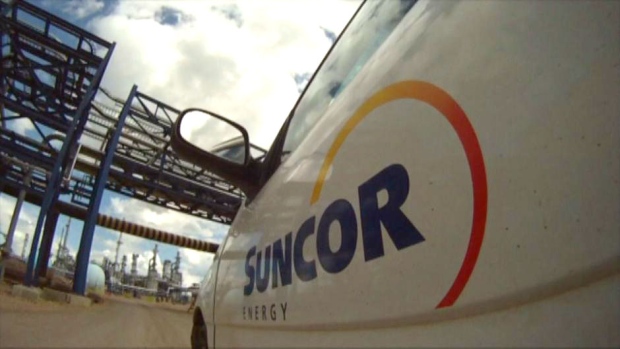Jul 26, 2018
Suncor cuts oil sands production guidance to reflect Syncrude outage
The Canadian Press

CALGARY - Suncor Energy Inc. is chopping its 2018 production guidance to account for a lengthy outage at the Syncrude oil sands mine and upgrader, as it reports second-quarter earnings that fell short of analyst expectations.
The Calgary-based oil sands giant says it expects its total production this year to reach about 745,000 barrels of oil equivalent per day, down from its earlier estimate of 760,000 boe/d.
Oil sands production is now expected to be 422,500 barrels per day, down from 440,000 bpd.
It says the revision reflects the sudden power outage that halted Syncrude production of up to 350,000 bpd in June. Suncor owns 58.7 per cent of Syncrude, which is not expected to be fully repaired until early to mid-September.
Suncor says it had net income of $972 million in the three months ended June 30, higher than $435 million in the same period of 2017, but short of the $1.01 billion expected by analysts as reported by Thomson Reuters Eikon.
Revenue, boosted by higher oil prices and refinery margins, along with additional production from its new Fort Hills and Hebron projects, was $10.3 billion, up from $7.2 billion a year earlier, and ahead of analyst expectations of $9.3 billion.




